Switzerland’s cautious relationship with the Vatican
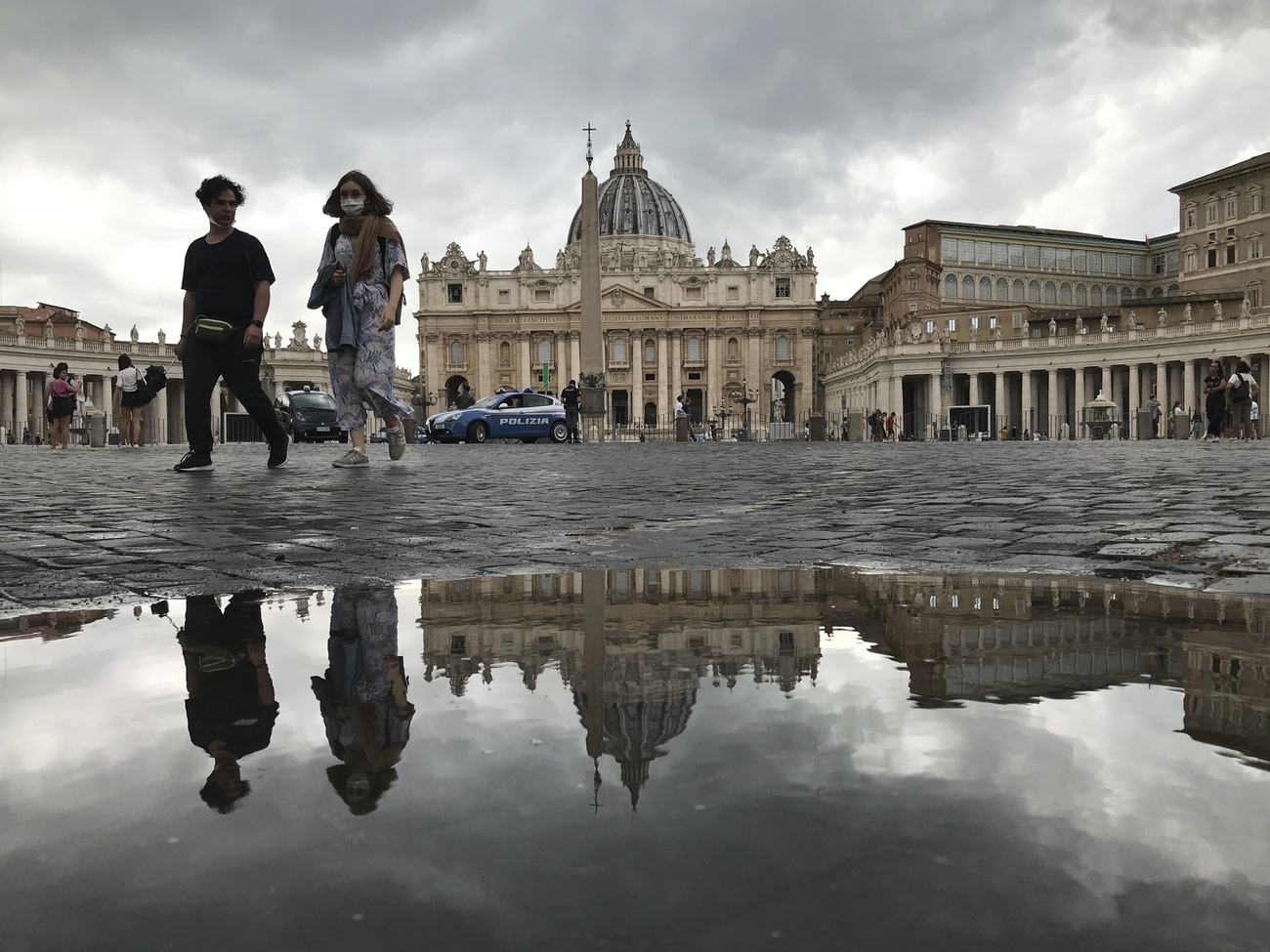
Switzerland appointed its first diplomatic representative to the Holy See just 30 years ago. Now the government wants to open an embassy in the Vatican. Over the centuries, relations between the two states have been marred by political and confessional strife.
It took the “Haas case” in the early 1990s to shake up the question of relations between Bern and the Vatican. The controversy sparked by the appointment of ultra-conservative Wolfgang Haas to the head of the Diocese of Chur, in eastern Switzerland, brought home to the federal authorities the importance of having a diplomatic representative in the Vatican.
In 1990 Pope John Paul II appointed Liechtenstein citizen Wolfgang Haas as head of the Diocese of Chur.
This triggered a period of great discord and crisis, as the new bishop’s ultra-conservative ideas were sharply at odds with the diocese’s liberal wing (in particular Catholics in canton Zurich).
Facing a wave of indignation among many church members, and despite numerous attempts to mediate, in 1997 the pope gave in to protests and removed Haas, creating a special archdiocese for him in Vaduz, the capital of Liechtenstein, and appointing a new Bishop of Chur, Amedée Grab.
“The experiences of the recent past show that, on the one hand, Swiss reality reaches Rome only as seen by the nuncio [the papal representative],” reads the act nominating an ambassador to serve as special envoy to the Holy See on October 30, 1991. “On the other hand, Switzerland is unable to obtain information through local contacts on certain events (e.g. visits to Rome by Swiss bishops) or on the background of papal policy towards Switzerland.”
The Swiss diplomatic representative named at the time, Jenö Staehlin, stayed in office for one year. A normalisation of diplomatic relations only came about in May 2004, just before John Paul II’s second visit to Bern, with the appointment of an extraordinary plenipotentiary ambassador.
Echoes of past conflict
The most recent step in the process of consolidating diplomatic relations was taken on October 1, 2021, with the government’s decision to open an embassy to the Holy See.
“Even today, diplomatic relations between Bern and Vatican City are not entirely undisputed and are still marked by caution,” observed historian Sacha Zala, director of Swiss Diplomatic DocumentsExternal link. “It is a legacy of the historical conflict between the liberal federal State and ultramontanismExternal link, that is, interference by the papacy in the politics of nation states.”
An echo of that conflict can also be found in the foreign ministry press release announcing the intention to establish a diplomatic office in the Vatican. The text reaffirms that the decision “does not change the Confederation’s relations with the Catholic Church and the Reformed Church”, and that full respect for “the powers of the Confederation and the canton” shall be guaranteed.
History of difficult relations
Diplomatic ties between Switzerland and the Vatican have distant roots. The Holy See was the second foreign state, after France, to establish a permanent diplomatic representation on the territory of the Swiss Confederation. And the presence of a papal nuncio in Lucerne from 1586 played an important role in the consolidation of Catholicism in Switzerland in the 16th and 17th centuries.

More
The Swiss soldiers guarding the pope
Barring a temporary break in diplomatic relations during the Helvetic Republic (1798 to 1803) the nunciature continued its diplomatic activities in Switzerland even after the French Revolution. Now, however, the nuncio was accredited to the Confederation, and not just to the Catholic cantons.
Sources of conflict increased with the emergence in Switzerland of radical liberal currents, which sought to subordinate the Catholic Church to the state authorities. Despite some turbulent moments, however, relations between Bern and Vatican City survived the upheaval of the Sonderbund war between liberal and conservative cantons and the creation of the modern federal state in 1848.
Strife was exacerbated during the so-called Kulturkampf (culture struggle). The dogma of papal infallibility (1870) and the anti-clericalism of many Swiss radicals pushed tensions to breaking point. After the publication by the Holy See of the Etsi multa encyclical, which harshly criticised the policies of the cantons and federal state towards the Catholic Church, the Swiss government broke off diplomatic relations with the Vatican in December 1873. The nuncio left Switzerland.
A slow healing
Ties with the Holy See were never completely severed, however. Matters related to the management of episcopal curiae in Switzerland repeatedly required dialogue between representatives of both sides.
A slight rapprochement also came about during the First World War. Vatican support for the internment of sick and wounded prisoners of war in Switzerland showed the convergence of interests between the Confederation and the Papal State in the field of humanitarian policy.
Cooperation in the humanitarian field helped foster political rapprochement. In June 1920, the Swiss government decided to resume diplomatic relations with the Holy See. Since then, the Vatican has again been officially represented in Switzerland by a papal nuncio.
The condition, however, was that Switzerland, “not having practised reciprocity in the past, will not [be able to] practise it in the future”. The government also urged the nuncio to “avoid, with great restraint, any question that could give rise to discord between Catholics and Protestants or among Catholics themselves”.
Moving towards reciprocal relations
The unilateral nature of diplomatic relations was rigorously respected during and after the Second World War, although the Swiss government was represented for the first time at a papal coronation (Pius XII) in 1939.
In the immediate post-war period, the possibility of appointing a diplomatic representative to the Vatican was rejected, in order to avoid “confessional strife in some parts of our country”, and because “it would complicate the problem of our relations with the USSR.” The discrimination suffered by Protestant minorities in Catholic countries such as Spain and Italy was further grounds not to abandon the principle of non-reciprocity.
(Translated from Italian by Julia Bassam)
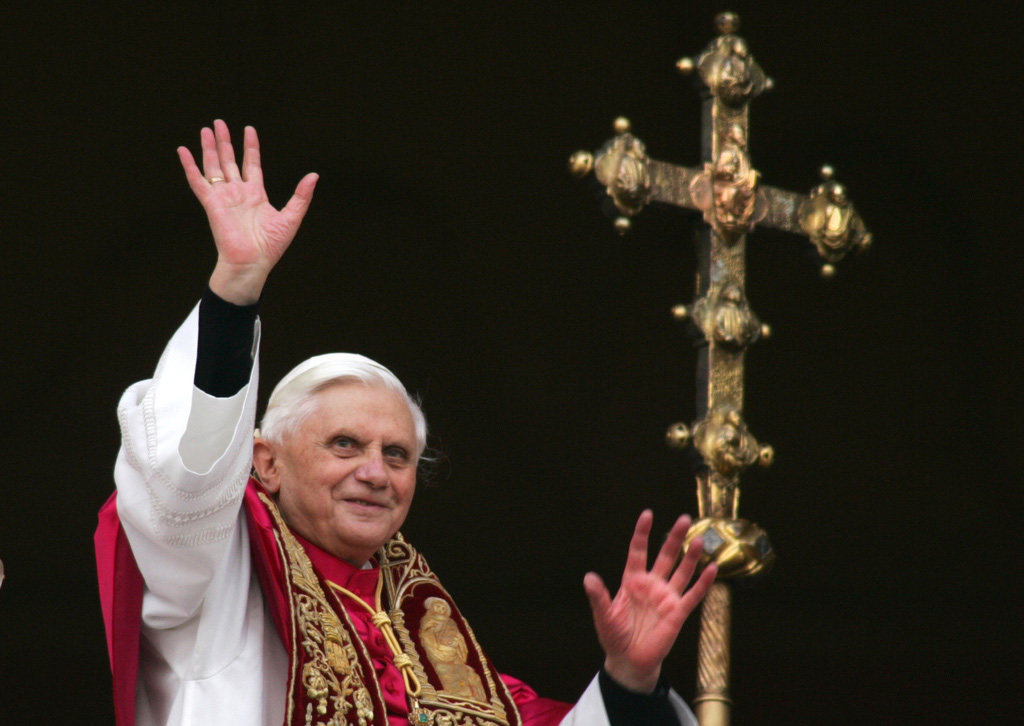
More
Pope faces criticism after five years in office

In compliance with the JTI standards
More: SWI swissinfo.ch certified by the Journalism Trust Initiative
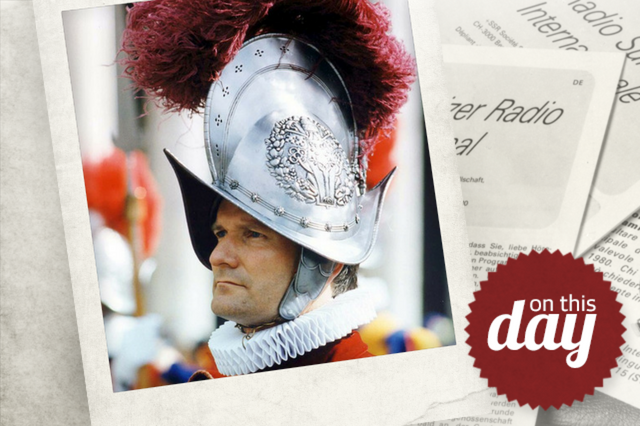

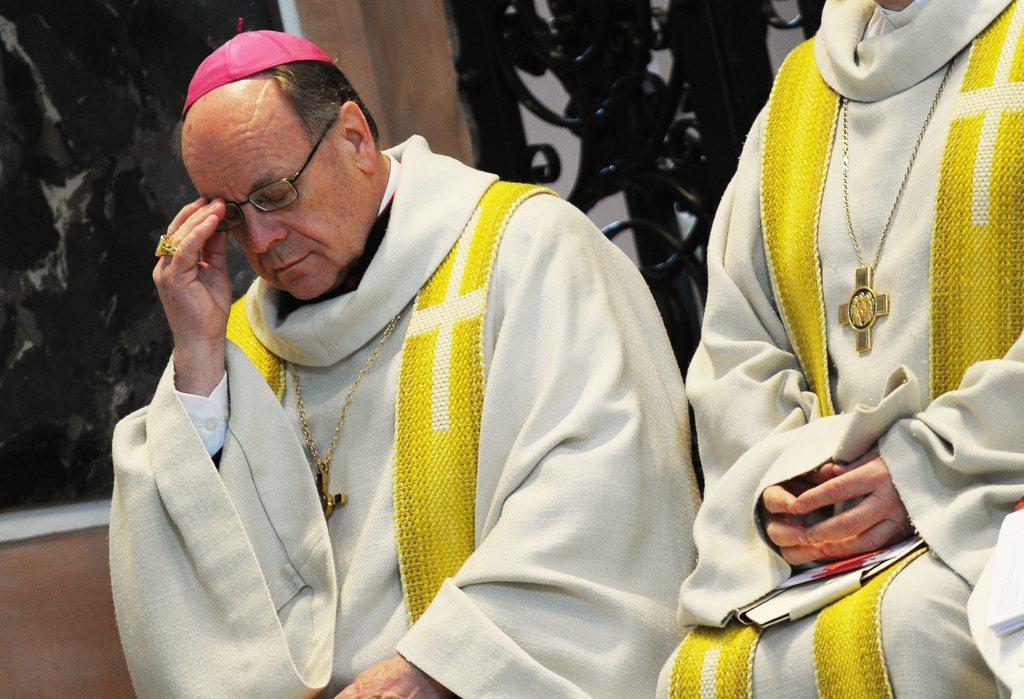
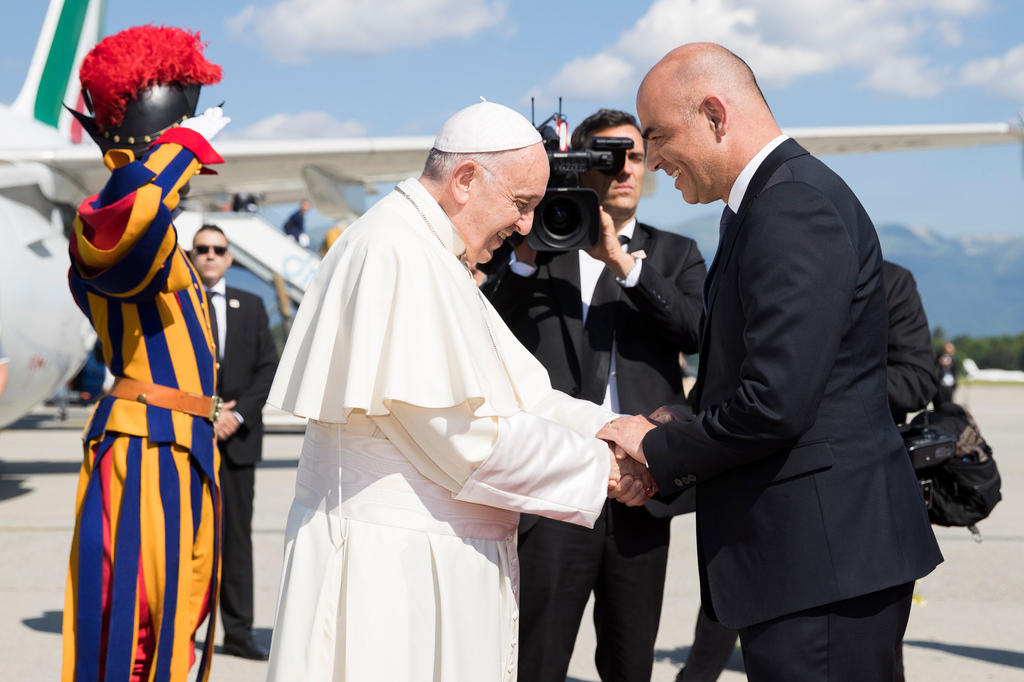
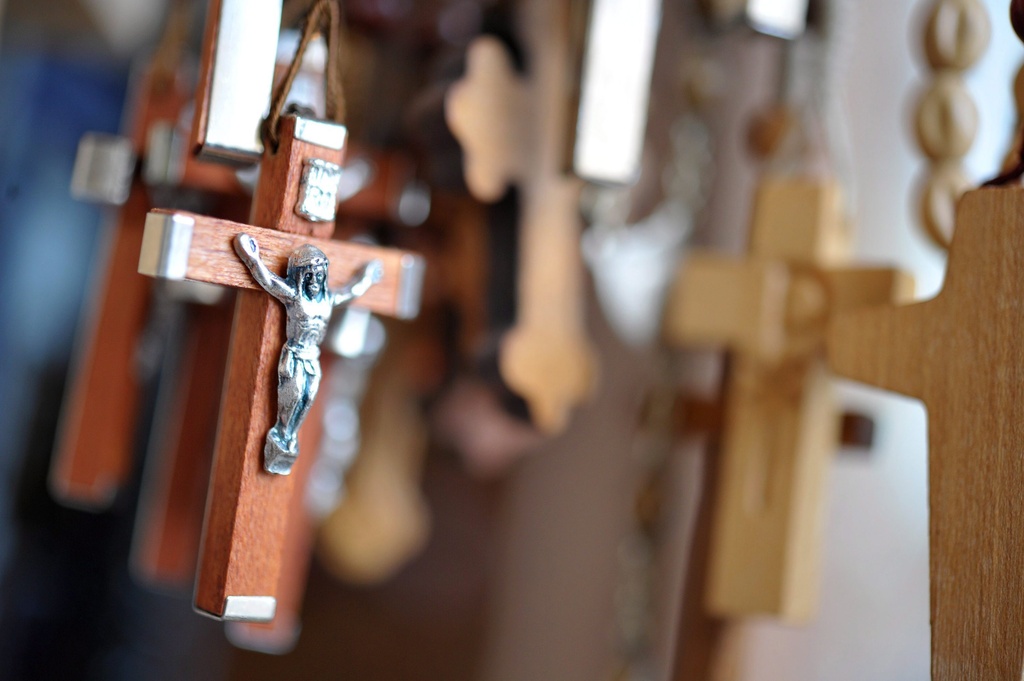
Join the conversation!